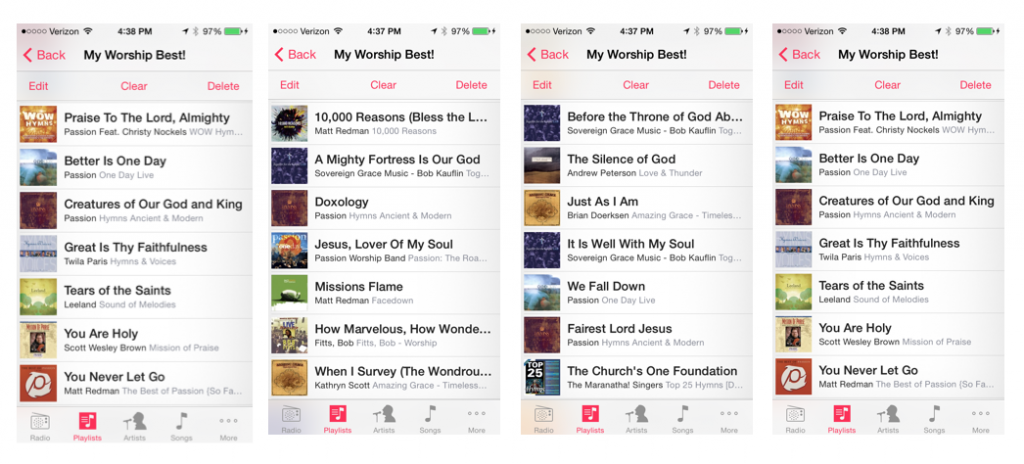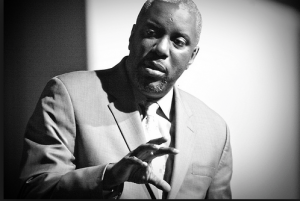
“You have made us for Thyself, and our hearts are restless until they find their rest in Thee.” (Augustine, from Confessions)
“For I decided to know nothing among you except Jesus Christ and him crucified.” (1 Corinthians 2:2 ESV)
“Take away the cross of Christ, and the Bible is a dark book.” (J.C. Ryle)
“A cheap Christianity, without a cross, will prove in the end a useless Christianity, without a crown.” (J.C. Ryle)
“The best of men are only men at their very best. Patriarchs, prophets, apostles, martyrs, church fathers, reformers, puritans – all are sinners who need a Savior.” (J.C. Ryle)
“It is a trustworthy statement, deserving full acceptance, that Christ Jesus came into the world to save sinners, among whom I am foremost of all. And yet for this reason I found mercy, in order that in me as the foremost, Jesus Christ might demonstrate His perfect patience, as an example for those who would believe in Him for eternal life. Now to the King eternal, immortal, invisible, the only God, be honor and glory forever and ever. Amen.” (1 Timothy 1:15 – 17 NASB)
“Calvary shows how far men will go in sin, and how far God will go for man’s salvation.” (H.C. Trumball)
“When Satan tells me I am a sinner he comforts me immeasurably, since Christ died for sinners.” (Martin Luther)
“It is easier to cry against one-thousand sins of others than to kill one of your own.” (John Flavel)
“But may it never be that I should boast, except in the cross of our Lord Jesus Christ, through which the world has been crucified to me, and I to the world.” (Galatians 6:14 NASB)
This Is How Jesus Died (warning: very graphic)
“Shredded flesh against unforgiving wood, iron stakes pounded through bone and wracked nerves, joints wrenched out of socket by the sheer dead weight of the body, public humiliation before the eyes of family, friends, and the world — that was death on the cross, ‘the infamous stake’ as the Romans called it, ‘the barren wood, ‘ the maxima mala crux. Or as the Greeks spat it out, the stauros [Greek word for the cross]. No wonder no one talked about it. No wonder parents hid their children’s eyes from it. The stauros was a loathsome thing, and the one who dies on it was loathsome too, a vile criminal whose only use was to hang there as a putrid decaying warning to anyone else who might follow his example. That is how Jesus died.” (Greg Gilbert, as quoted in “The Gospel: God’s Self-Substitution for Sinners” in Don’t Call It a Comeback, by Kevin DeYoung – Wheaton, Ill.: Crossway Books, 2011 – Page 72)
“At the cross, the love of God and the wrath of God shake hands; the mercy of God and the justice of God embrace; and the holiness of God and the sinfulness of humanity appear in stark contrast.” (William P. Farely, from his book – Outrageous Mercy)
“For the grace of God that brings salvation has appeared to all men. It teaches us to say ‘No’ to ungodliness and worldly passions, and to live self-controlled, upright and godly lives in this present age.” (Titus 2:11-12)
“There is a history full of grace behind us, and a prophecy full of glory before us.” (C.H. Spurgeon)
“If we find ourselves with a desire that nothing in this world can satisfy, the most probable explanation is that we were made for another world.” (C.S. Lewis in Mere Christianity)
“The effect of the cross is…we are silenced by the severity of our sin and we are stunned by the glory of our God.” (Is. 52:13-53:12) (David Platt)
“The law discovers the disease. The gospel (the cross and resurrection) gives the remedy.” (Martin Luther)
“…the gospel tells us that we’re far worse off than we ever imagined . . . and far more loved than we ever dared to dream.” (Tim Keller)
“…but He, having offered one sacrifice for sins for all time, sat down at the right hand of God.” (Hebrews 10:13 NASB)
“…He entered the holy place once for all, having obtained eternal redemption.” (Hebrews 9:12 NASB)
“…having forgiven us all our transgressions, having cancelled out the certificate of debt consisting of decrees against us and which was hostile to us; and He has taken it out of the way, having nailed it to the cross.” (Colossians 2:13b-14 NASB)
“Every time we look at the cross, Christ seems to say to us, ‘I am here because of you. It is your sin I am bearing, your curse I am suffering, your debt I am paying, your death I am dying.’ Nothing in history or in the universe cuts us down to size like the cross. All of us have inflated views of ourselves, especially in self-righteousness, until we have visited a place called Calvary. It is there, at the foot of the cross, that we shrink to our true size.” (John R. W. Stott, from his commentary, The Message of Galatians (London, 1968), page 179.
“Either He bore all our sins, or none; and He either saves us once for all, or not at all.” (Charles Spurgeon)
“Since, therefore, we have now been justified by his blood, much more shall we be saved by him from the wrath of God.” (Romans 5:9 ESV)
“Ransomed men need no longer pause in fear to enter the Holy of Holies. God wills that we should push on into His Presence and live our whole life there. This is to be known to us in conscious experience. It is more than a doctrine to be held, it is a life to be enjoyed every moment of every day.” (A. W. Tozer)
“I’m forgiven because You were forsaken, I’m accepted, You were condemned.
I am alive and well, Your spirit is within me, Because You died and rose again.
Amazing love, How can it be That You, my King, should die for me?
Amazing love, I know it’s true. It’s my joy to honor You, In all I do, I honor You.”
(From Amazing Love – by Chris Tomlin)
“For the word of the cross is folly to those who are perishing, but to us who are being saved it is the power of God.” (1 Corinthians 1:18 ESV)
“Our Lord has written the promise of resurrection, not in books alone, but in every leaf in springtime.” (Martin Luther)
“Entrust the past to God’s mercy, the present to His love, and the future to His providence.” (St. Augustine, from Confessions)









